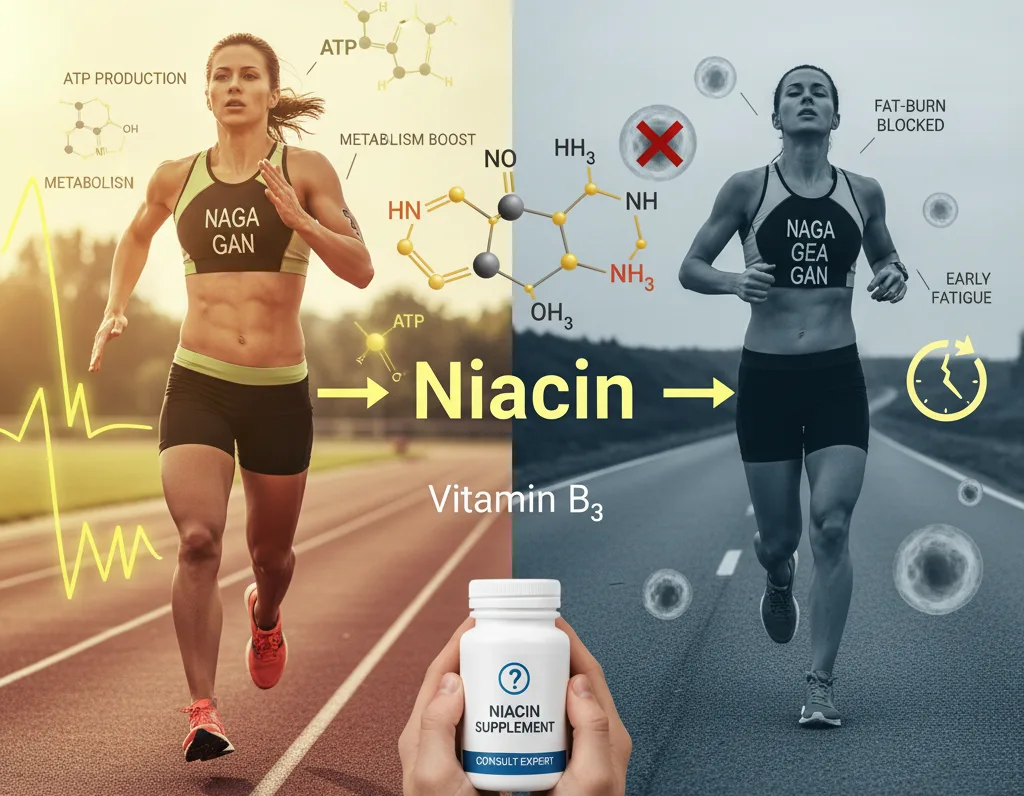Most of us are familiar with the B vitamin complex and understand their fundamental importance in human health. These essential micronutrients play a myriad of roles, from cell metabolism to energy production. Among them, Vitamin B3, commonly known as Niacin, stands out for its direct involvement in powering our bodies.
Niacin: The Fueling Coenzyme
Niacin serves as a crucial precursor to the vital coenzymes NAD (Nicotinamide Adenine Dinucleotide) and NADP+ (Nicotinamide Adenine Dinucleotide Phosphate). These coenzymes are indispensable in virtually all metabolic processes, participating in both anabolic (building up) and catabolic (breaking down) reactions within our cells.
Their primary role in energy production is straightforward: NAD picks up an electron and a hydrogen atom, transforming into NADH. This NADH then journeys into the cell's powerhouses, the mitochondria, where it drives the production of ATP (Adenosine Triphosphate) – the universal energy currency of the body. Given this critical function, it's easy to assume that more Niacin would automatically translate to more energy and better athletic performance. However, as the saying goes, "more isn't always better."
The Surprising Truth: Niacin and Fat Burning
While Niacin is essential, simply taking more of it doesn't necessarily boost performance and, in some contexts, can even be counterproductive for athletes. When Niacin enters cells, it can trigger a complex biochemical cascade, activating an enzyme called Hormone-Sensitive Lipase (HSL).
Here's where it gets interesting: the activation of HSL by Niacin actually inhibits the mobilization and release of stored fat into the bloodstream for energy. In simpler terms, Niacin can effectively reduce the body's ability to burn fat during exercise.
For athletes, this mechanism has significant implications. If the body is less able to tap into its vast fat reserves for fuel, it may rely more heavily and prematurely on its limited glycogen stores (stored carbohydrates). Depleting glycogen too quickly can lead to:
-
Early fatigue: Running out of glycogen means running out of primary rapid energy, leading to a "bonk" or hitting the wall.
-
Reduced endurance: The inability to efficiently utilize fat as a sustainable energy source compromises long-duration performance.
So, while Niacin is vital for metabolism, an excessive intake, particularly before or during prolonged exercise, might inadvertently hinder an athlete's ability to sustain effort by impairing fat utilization.
Niacin's Other Side: Therapeutic Uses
It's important to note that Niacin's effect on fat metabolism is not entirely negative. In a different context, this same mechanism is leveraged therapeutically. By influencing lipid metabolism, Niacin has been shown to improve lipid profiles in individuals with conditions like dyslipidemia (abnormal cholesterol or triglyceride levels). However, these are clinical applications requiring medical supervision and specific dosages, distinct from general athletic supplementation.
The Takeaway for Athletes
For athletes and active individuals, the key message is clear:
-
Essential, Not Excessive: B vitamins, including Niacin, are fundamental for overall health and energy metabolism. Ensuring adequate intake from a balanced diet is crucial.
-
More Is Not Always Better: Simply consuming large amounts of Niacin, especially as a supplement, does not equate to enhanced athletic performance and may even interfere with the body's natural fat-burning processes.
-
Consult a Professional: If you suspect a deficiency, are considering supplementation, or wish to optimize your nutrient intake for athletic goals, always consult with a healthcare professional, sports nutritionist, or dietitian. They can provide personalized advice based on your individual needs and avoid potential pitfalls.
In conclusion, Niacin is a powerful and essential nutrient. Understanding its multifaceted roles, including its surprising impact on fat metabolism, allows us to harness its benefits effectively while avoiding unintended consequences, especially in the pursuit of athletic excellence.
